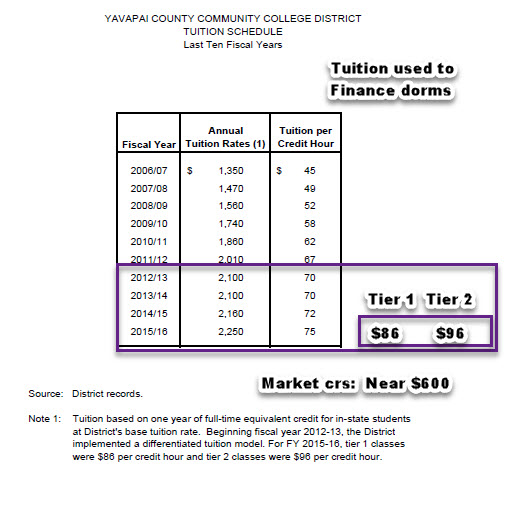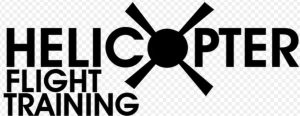List of attorneys representing various parties as far back as 2015 follows below; who is paying for all this legal representation?
The five-year multi-million dollar lawsuit between the former director of aviation programs at Yavapai College, Dan Hamilton, and the College is headed for a jury trial based on the most recent ruling by Federal District Judge Murray Snow. It has dragged on for five years. There appear to be eleven parties including the plaintiff, nine defendants, and the United States Government. (Note that some named defendants are sued in different capacities, thus the extended list of parties.)
One of the questions about the lawsuit is who is paying for the several defense attorneys involved in the action? And how much has been paid? And how much is owing? No one on the College Governing Board has publicly asked for that information and the College has not provided the information to the public.
If the lawsuit is not settled, the jury will be asked to decide whether the College took sufficient steps to inform the VA about how the College was calculating the 85/15 rule. Hamilton alleges that Yavapai College and its airplane program partner, NorthAire Aviation, violated the Veteran’s Administration funding rule that limits VA beneficiary enrollment to 85% in any program. (In other words, the program must have at least 15% of its enrollees as civilians.)
In his most recent rulings, Federal District Court Judge Murray Snow wrote that there are “competing issues of material fact as to whether the VA explicitly authorized” Yavapai College to use the calculation it did to arrive at an 85/15 ratio. The conflict in testimony is between the College’s Certifying Official, Ms. Aldrich, and the VA representative, Ms. Swafford.
The attorneys listed by the United States District Court, D. Arizona, listed the following defendants and their attorneys as of April 1, 2015.
Attorney(s) appearing for the Case (2015 list)
Daniel Hamilton, Plaintiff, represented by Krista Michelle Carman , Warnock MacKinlay & Carman PLLC &Richard James Harris , Richard J Harris & Associates PC.
Yavapai Community College District, Defendant, represented by Elizabeth Ann Gilbert , Jones Skelton & Hochuli PLC.
Yavapai Community College District, Defendant, represented by Georgia A Staton , Jones Skelton & Hochuli PLC.
Yavapai Community College District, Defendant, represented by Steven Douglas Leach , Jones Skelton & Hochuli PLC.
Guidance Academy LLC, Defendant, represented by Dan W Goldfine , Snell & Wilmer LLP, Donald Charles Zavala, Jr. , Boyle Pecharich Cline Whittington, James Michael Gottry , Snell & Wilmer LLP & Joshua Grabel , Snell & Wilmer LLP.
John L Stonecipher, Defendant, represented by Dan W Goldfine , Snell & Wilmer LLP, Donald Charles Zavala, Jr. , Boyle Pecharich Cline Whittington, James Michael Gottry , Snell & Wilmer LLP & Joshua Grabel , Snell & Wilmer LLP.
Amanda Alsobrook, Defendant, represented by Dan W Goldfine , Snell & Wilmer LLP, Donald Charles Zavala, Jr. , Boyle Pecharich Cline Whittington, James Michael Gottry , Snell & Wilmer LLP & Joshua Grabel , Snell & Wilmer LLP.
John Morgan, Defendant, represented by Donald Peder Johnsen , Gallagher & Kennedy PA, Georgia A Staton , Jones Skelton & Hochuli PLC & Steven Douglas Leach , Jones Skelton & Hochuli PLC.
John Morgan, named as: husband on second amended complaint, Defendant, represented by Jodi Renee Bohr , Gallagher & Kennedy PA.
April Morgan, Defendant, represented by Donald Peder Johnsen , Gallagher & Kennedy PA, Georgia A Staton , Jones Skelton & Hochuli PLC, Steven Douglas Leach , Jones Skelton & Hochuli PLC & Jodi Renee Bohr , Gallagher & Kennedy PA.
United States of America, Movant, represented by Lon R Leavitt , US Attorneys Office & Todd Frederick Lang , US Attorneys Office.
 The multimillion dollar lawsuit between the former director of aviation programs at Yavapai College, Dan Hamilton, and the College is headed for a jury trial. If it is not settled, the jury will be asked to decide whether the College took sufficient steps to inform the VA about how they were calculating the 85/15 rule. Hamilton alleges that Yavapai College and its airplane program partner, NorthAire Aviation, violated the Veteran’s Administration funding rule that limits VA beneficiary enrollment to 85% in any program. (In other words, the program must have at least 15% of its enrollees as civilians.)
The multimillion dollar lawsuit between the former director of aviation programs at Yavapai College, Dan Hamilton, and the College is headed for a jury trial. If it is not settled, the jury will be asked to decide whether the College took sufficient steps to inform the VA about how they were calculating the 85/15 rule. Hamilton alleges that Yavapai College and its airplane program partner, NorthAire Aviation, violated the Veteran’s Administration funding rule that limits VA beneficiary enrollment to 85% in any program. (In other words, the program must have at least 15% of its enrollees as civilians.)
 A federal judge has ruled that a second whistleblower case against a Yavapai College flight program will go forward. The case alleges Yavapai College’s airplane pilot program took millions of dollars from the VA by submitting false claims for veteran education benefits while knowingly violating the VA’s enrollment limitations. The Complaint was filed by the former director of aviation programs at YC, Dan Hamilton, and alleges that YC and its airplane program partner, NorthAire Aviation, violated the VA’s funding rule that limits VA beneficiary enrollment to 85% in any program. The Complaint details schemes wherein NorthAire improperly paid for students whom the program certified were not receiving any institutional aid and that the program improperly counted students who were not in the airplane program including part-time, non-flight training, high school students for whom YC waived tuition. The 85% enrollment limitation is the VA’s safeguard to guarantee that the programs have real world relevance, demand and market driven pricing.
A federal judge has ruled that a second whistleblower case against a Yavapai College flight program will go forward. The case alleges Yavapai College’s airplane pilot program took millions of dollars from the VA by submitting false claims for veteran education benefits while knowingly violating the VA’s enrollment limitations. The Complaint was filed by the former director of aviation programs at YC, Dan Hamilton, and alleges that YC and its airplane program partner, NorthAire Aviation, violated the VA’s funding rule that limits VA beneficiary enrollment to 85% in any program. The Complaint details schemes wherein NorthAire improperly paid for students whom the program certified were not receiving any institutional aid and that the program improperly counted students who were not in the airplane program including part-time, non-flight training, high school students for whom YC waived tuition. The 85% enrollment limitation is the VA’s safeguard to guarantee that the programs have real world relevance, demand and market driven pricing. 
 This regulatory development specifically impacts the Helicopter Operations and Airplane Operations concentrations of the Associate of Applied Science in Aviation Technology (AVT) degree at Yavapai College. The private pilot applicable courses had to be removed from the two flight concentrations.
This regulatory development specifically impacts the Helicopter Operations and Airplane Operations concentrations of the Associate of Applied Science in Aviation Technology (AVT) degree at Yavapai College. The private pilot applicable courses had to be removed from the two flight concentrations. The assignment to Judge Snow may encourage the College to reach a settlement.
The assignment to Judge Snow may encourage the College to reach a settlement.